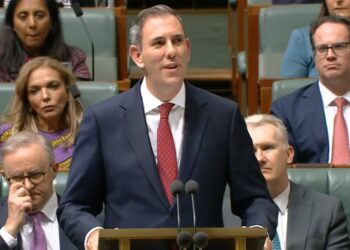FPA chief executive Dante De Gori said that while he welcomed the fairness measures in the federal budget, the association is concerned about the increased complexity and changes to the “transition to retirement” (TTR) strategy.
“The FPA believes that the ‘effective’ abolition of TTR is a net negative for low to middle-income earners. The tax exemption for earnings on assets supporting TTR income streams will be removed, and concessional contribution caps reduced,” he said.
“These changes mean financial planners must help clients navigate an increasing number of rules and consider the retrospective nature of these changes particularly around tax and super.”
Mr De Gori urged advisers to speak to clients as soon as possible.
“As a result of tonight’s announcement, the FPA encourages planners to plan client reviews carefully, giving priority to those affected immediately or very soon, versus those where the potential impact is very significant,” he said.
The AFA agreed with the FPA stance and chief executive Brad Fox said he was “disappointed” with some of the superannuation changes, including the TTR and reducing the amount of money people can add to their superannuation accounts each year at the 15 per cent concessional tax rate.
“What is very clear is that Generation X, Baby Boomers and existing retirees will need to take a careful look at their position to understand and interpret what the changes will mean for them both today and for the long term,” Mr Fox said.
“The interplay between these measures means that most Australians will need to seek financial advice to make the best use of the various measures.”
The FSC labelled the cuts to super tax concessions as “counterproductive”.
“The test for this budget is whether Australia will have more pensioners or more self funded retirees,” FSC chief executive Sally Loane said.
“The new caps and thresholds limit the capacity for Australians to save for their own retirement and will restrict retirees to an income of around $80,000 per annum from their superannuation.
“An $80,000 limit will fail to cover the costs of retirement for many Australians, when you include healthcare, aged care and a comfortable standard of living,” she said.
The SMSF Association’s managing director Andrea Slattery said that the concessional cap reduction would send shockwaves through the SMSF sector.
“This is clearly not the case with concessional caps being cut to $25,000 (currently $30,000 for people aged under 50 and $35,000 for those 50 and over), and when coupled with other measures represents the most significant changes to the superannuation system since the 2007 Budget,” she said.
“We strongly believe that adequate concessional contribution caps are vital to allow people to save for a secure and dignified retirement.”
ASFA said that it too did not support the concessional cap reduction and ASFA chief executive Pauline Vamos urged advisers to speak with their clients.
“Be cautious, don’t be hysterical, look at what it all means,” she said. “There are significant changes but again, for the majority of people, it is not a major change and it is mainly for those who are very close to retirement or have very high account balances and high incomes.
“While today less than 2 per cent of people (around 255,000) with superannuation make contributions above $25,000, a significant number of such individuals that have low balances are attempting to catch up. For instance, around 36,000 women with balances less than $200,000 in 2013/14, were making contributions in excess of $25,000,” ASFA chief executive Pauline Vamos said.
Despite this, the FPA welcomed measures to improve fairness in the superannuation system.
“There are measures in tonight’s 2016-17 Federal Budget to help low-income earners and those with low superannuation balances, such as the introduction of a Low Income Superannuation Tax Offset (LISTO) to reduce the effective tax rates on concessional contributions to super for individuals with incomes under $37,000,” Mr De Gori said.
“The FPA also welcomes measures to encourage catch-up contributions. Individuals, especially women, with superannuation balances under $500,000 will be able to rollover their unused concessional contributions cap from previous years,” he said.




DOD I share your concerns about Dante’s comments in relation to TTRs. They were never intended to be the rort they have become. It only happened because some idiot in the ATO issued a tax ruling that gave the green light to behaviour which most planners previously thought was clear tax avoidance. Responsible planners should not be advocating for the continuation of TTRs in their current form.
In the same vein, responsible planners should not be whining about old people with multi million dollar homes and a million dollars in liquid assets, having their taxpayer funded age pension removed. It is unfortunate that some planners have seen fit to make a big issue about these people being “worse off”.
By contrast I consider Paline Vamos’ comments as measured and sensible…
I find that the comments by Dante De Gori in his role as figurehead for financial planning professionals are very interesting. Given the budget comments about the recognition of the trend for people using ‘transition to retirement’ income streams for other than their intended purpose (of enabling older employees to access funds while reducing working hours), how does he support his comments about the ‘abolition of TTR’. Nothing of the sort is actually happening of course – just a refocusing of the facility towards the intended purpose. I can only see Dante’s position as enhancing possibly mistaken views of financial advisors as opportunists.
The article should say [Except those clients who have elected to “opt Out” of advice. Tough luck to them. FOFA – reducing the complexity and cost of advice since 2013.